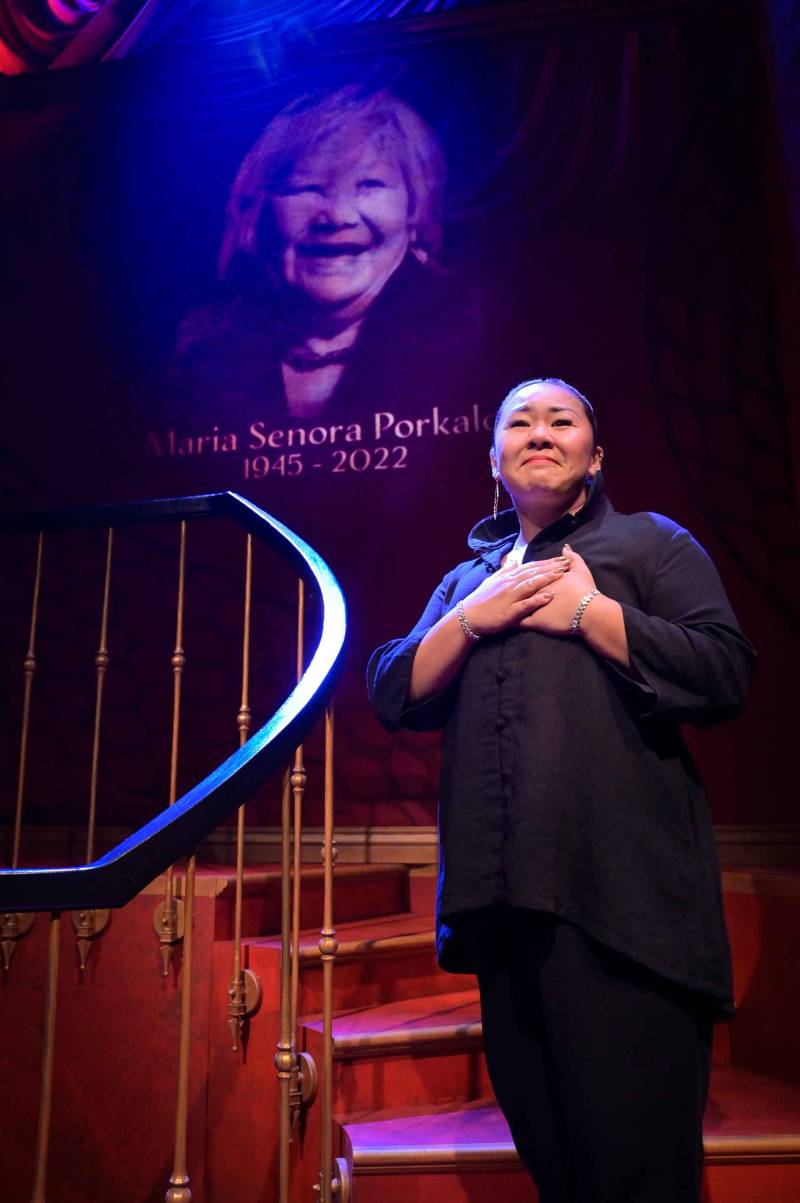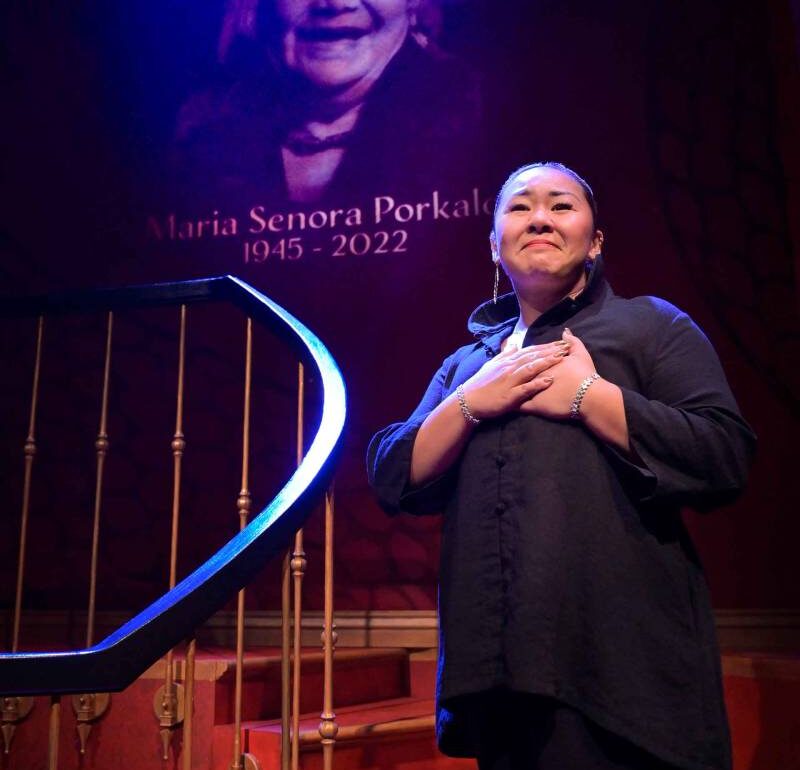Porkalob’s one-woman opus Dragon Lady, running through Dec. 17 at Marin Theatre Company, is part of a trilogy of plays about the women in her family. It’s also the culmination of a gift she was given by her boss of a grandmother, Maria Sr.
In Dragon Lady, Maria Sr. is less than thrilled about the prospects of a 60th birthday party. But, with this milestone date, she decides she’d better tell her past family stories to someone before it’s too late. Fortunately, those stories land with Porkalob, a Seattle-based performer who has gone on to a celebrated storytelling career, including her Broadway debut in 2022. (That New York performance, starring as Edward Rutledge in 1776, introduced Porkalob to the masses in more ways than one; an interview in Vulture where she shared her frank thoughts on the production made her a national conversation piece.)

While the framing of a birthday party has a slightly contrived feel, it ultimately serves as a scintillating showcase for the whirling-dervish talents of Porkalob. She plays a multitude of characters, most of them effective, within a sharply metaphoric scene design (from Randy Wong-Westbrooke) and beautiful lighting design (by the always-solid Spense Matubang). The musical backing of three-piece combo Hot Damn Scandal provides terrific texture, pulled together sweetly by director Andrew Russell.
As Grandma sets foot on stage to start the proceedings, injecting morsels of Tagalog in her delivery, she provides a taste of her past talents as she shows off her new karaoke machine. Some dulcet, velvety-smooth trills emanate from Porkalob’s golden pipes, immediately accompanied by hip-hop beats, thanks to the machine’s remixing capabilities. Grandma’s giddiness over her toy is tempered, though, with anxiety over the birthday festivities.

Porkalob’s approach to her grandmother is reverent without skirting past the complexities that made living with a complicated matriarch such a chore: Grandma would disappear for weeks on end, we learn through Sara’s mother Maria, working multiple jobs to support the family.
But is that really what she was doing? For as much as Grandma worked, there was very little to show for it. A microwave rendered useless due to electricity being shut off in their Washington trailer park structure is another indignity suffered. Warming up a bottle for the newest baby in the house challenges 13-year-old Maria, a young girl spending more time caring for her baby sister in her mother’s absence than going to school. It’s soul-crushing to hear Maria express her crippling fear as she grapples with a pitch-black house full of petrified littles.
What’s clear: the women in Porkalob’s tale are fighters. Grandma’s brand was built in a tawdry Manila nightclub, where seductive gangsters fawned over Maria Sr. and her heavenly vocal talents. The thrilling yet seedy world of sketchy figures, murderous propositions and a never-ending debt to the lordess of the club provides the backdrop for Grandma’s harrowing escape.
And while the exit from the underbelly of gangsters has its benefits, domestic life — with too many famished kids — offers very little respite. Porkalob’s narrative moves expediently from the devastation of hunger to the sweet humor of complicated family life.

One particularly poignant moment involves two of Grandma’s empathic boys, Junior and Charlie, who devise a scheme to snag donated groceries thanks to some borrowed Boy Scout uniforms. Earnestly, they stand in front of each house, gently inquiring for something to eat. “We can’t just ask for food, we have to ask for ‘food donations,’” instructs Junior with crushing clarity.
The payoff of the young tikes and their trudging door-to-door is an emotional punch to the gut, as young Maria discovers what they’ve just done. “We can all have spam fried rice for dinner tonight,” declares an emotional Maria in a particularly tear-inducing delivery.
This post was originally published on this site be sure to check out more of their content.



